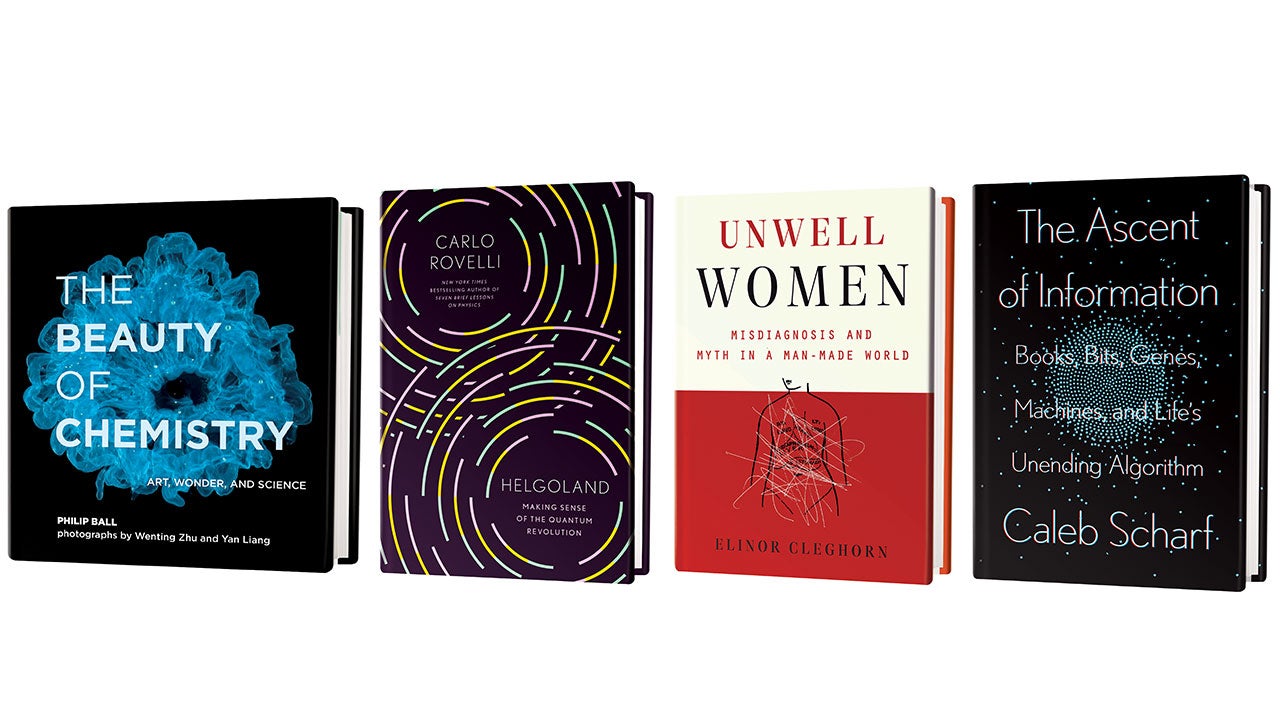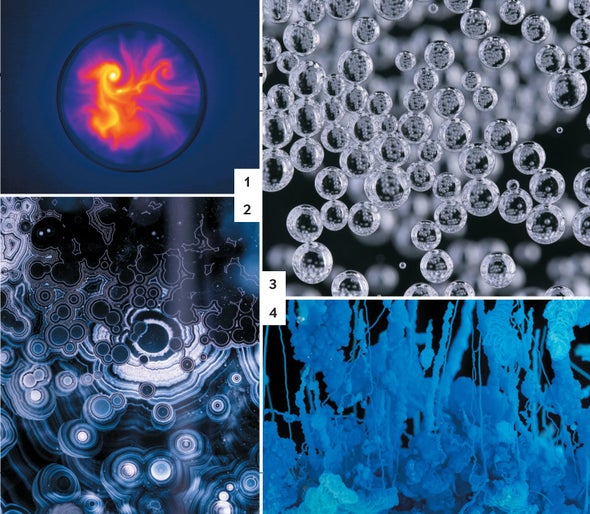The Beauty of Chemistry: Art, Wonder, and Science
by Philip Ball
MIT Press, 2021 ($49.95)
Chemistry is perhaps the most sensual of the sciences, writer Ball posits in this absorbing collection of photographs from science artists Wenting Zhu and Yan Liang. Behind every smell, every worldly texture, even every emotional response, there is a chemical reaction. The wonder of those reactions is on display here, from the mesmerizing precipitation of heavy metals such as cobalt and nickel to the thermal heat map of sodium dissolving in plain water. The alien look of a copper nitrate “chemical garden” evolves through the action of ions and precipitation. Ball explains the science of these complex reactions and interweaves them with literary ideas and philosophical contexts. Far from portraying a routine lab procedure, this collection showcases chemistry's excitement and aesthetic allure.
Helgoland: Making Sense of the Quantum Revolution
by Carlo Rovelli
Riverhead Books, 2021 ($20)
It is not just laypeople who find quantum mechanics inscrutable—the more physicists ponder it, the more perplexed they become, writes physicist Rovelli. The esoteric theory describing the behavior of particles on the submicroscopic scale rewrites the rules of normal reality we are accustomed to, substituting probability for certainty. Seriously considering its implications for understanding the world, he says, is “an almost psychedelic experience.” This entertaining and legible guide paints the history of quantum theory and lays out its possible meanings, including the author's favorite—the “relational” interpretation—which posits that things exist only through their interactions with other things: there is no absolute reality. —Clara Moskowitz
Unwell Women: Misdiagnosis and Myth in a Man-Made World
by Elinor Cleghorn
Dutton, 2021 ($27)
Researcher Cleghorn provides an essential history of misogyny in health care, beginning with the so-called father of medicine himself, Hippocrates, who wrote that female bodies were a weaker version of male bodies. That prejudice has carried through thousands of years, and its remnants are well preserved today: women's ailments have been an afterthought in research, and women are still underrepresented in clinical trials. Women of color are particularly underserved: Black women are up to five times as likely to die in childbirth as their white counterparts, and more than 20 percent experience discrimination when they visit doctors. This clear-eyed assessment is both a catalog of how medicine has been complicit in female oppression and a call to action for drastic reform.
The Ascent of Information: Books, Bits, Genes, Machines, and Life’s Unending Algorithm
by Caleb Scharf
Riverhead Books, 2021 ($28)
According to some estimates, our global civilization now generates some 2.5 quintillion bytes of information. This data deluge—which astrobiologist Scharf dubs our “dataome”—has profound implications for our future, for good or ill. For instance, is it good or bad that the dataome places a heavy physical burden on the world in the form of energy-hungry computers, storage devices and telecommunications technologies? On such matters Scharf prefers to conservatively outline the limits of current knowledge rather than make pronouncements with false certitude, but the end result is no less audacious: a transformative new way of looking at our increasingly data-driven existence. —Lee Billings



